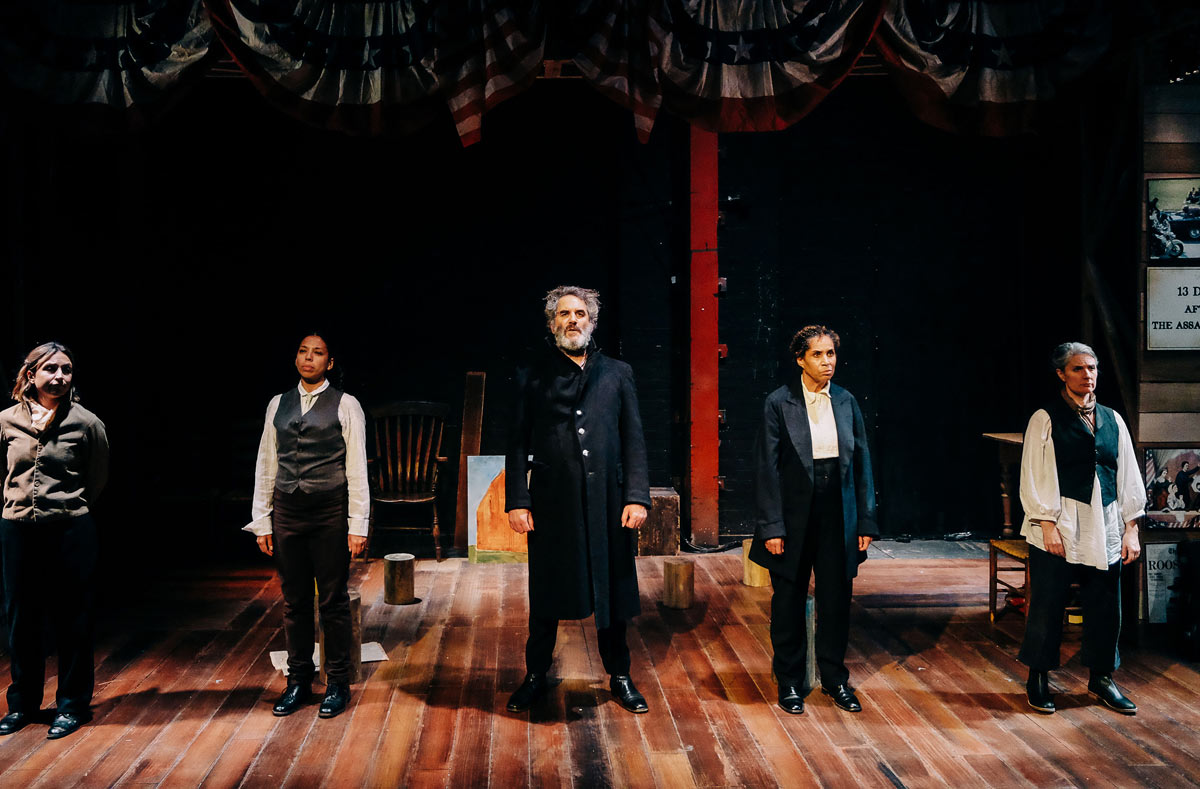In terms of timelines, perhaps it isn’t such a great coincidence that the current US Presidential Election is nearing its denouement and that Donald Trump recently dodged a sniper’s bullet. Known to history as the man who assassinated President Abraham Lincoln, the play attempts to separate John Wilkes Booth (Brandon Bassir) from his singular noteworthy act, as it paints a fuller picture of family life and the reasons the man felt such a deep resentment towards authority figures. The first half of the play deals with the formative lives of four siblings, children of a renowned English-born stage actor Junius Brutus Booth (Owen Oakeshott) who it transpires was a bigamist. The children struggle to find their position in the pecking order of their father’s affections and John (known to most as Wilkes), does not appear to have been especially favoured.
This foundation to the story is quickly followed by: Wilkes Booth’s brace of romantic attachments (played with aplomb by Natalie Law and Sara Lessore), Lincoln’s accession to the US Presidency (as played by Clara Onyemere), the Civil War, plans to kidnap Lincoln while he attends a performance of the comedy play Our American Cousin with his wife Mary (Hannah Emanuel) on 14th April 1865, his assassination, and its aftermath.
Given the potential dryness of American historical biography, most efforts nowadays attempt a musical format (if only in the hopes of emulating the commercial success of Hamilton), but here the only songs which feature, are recognisable and have a specific association with the period. They include Dixie and The Star-Spangled Banner (which the cast revel in explaining was very nearly replaced as the national anthem, due to its dubious lyrics, were it not for a concerted campaign and well-supported petition).
Throughout the play, the actors return to the family’s Shakespearean training and there are whole sections in which Wilkes, his brother Edwin (a resonant classical voice together with instrument playing skills from Dan Wolff) and sisters Asia and others, speak in iambic pentameter. Early on, we are advised that some men are played by women and there is a general fluidity in the assumption of roles which in the main, works perfectly well and never feels especially detrimental, or out of place.
By the end, we feel that Wilkes may well have genuinely believed he was dispatching a tyrant with his act, but we are also left to ponder whether a little more attention and approval in his childhood would have prevented the creation of such a resentful and narcissistic personality. Roll on November 5th.

 Natalie Law, Sara Lessore, Owen Oakeshott, Clara Onyemere, and Hannah Emanuel in Land of the Free at Southwark Playhouse Borough.
Natalie Law, Sara Lessore, Owen Oakeshott, Clara Onyemere, and Hannah Emanuel in Land of the Free at Southwark Playhouse Borough.

